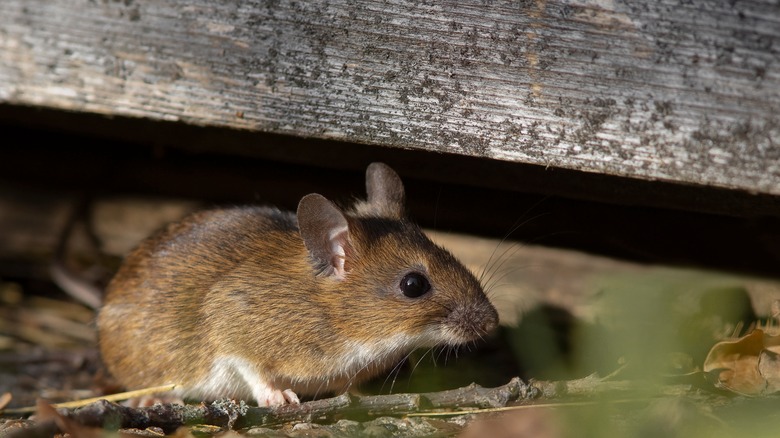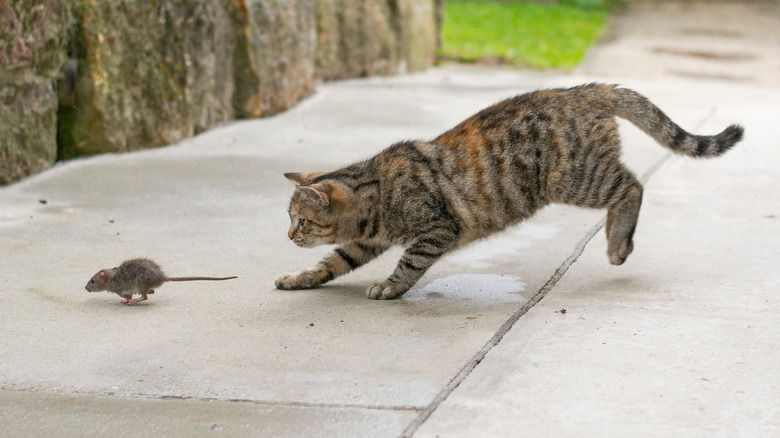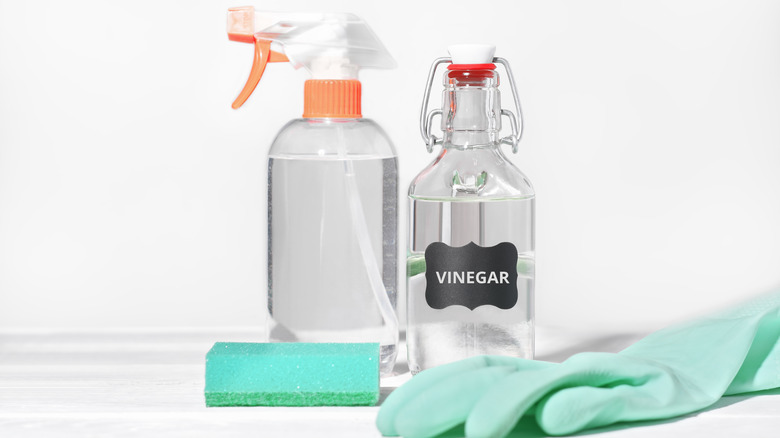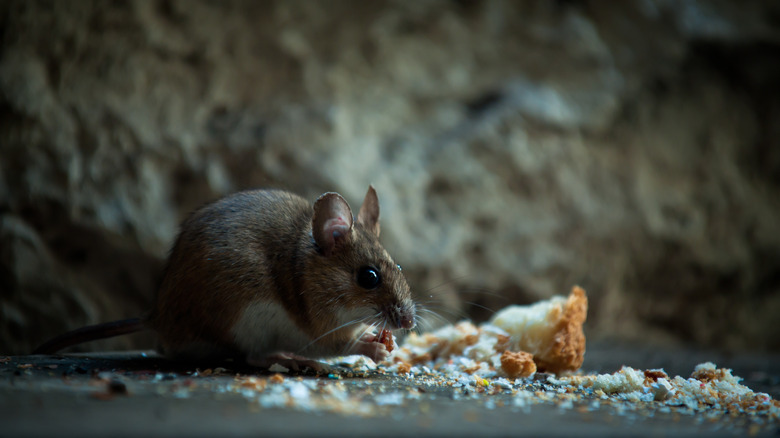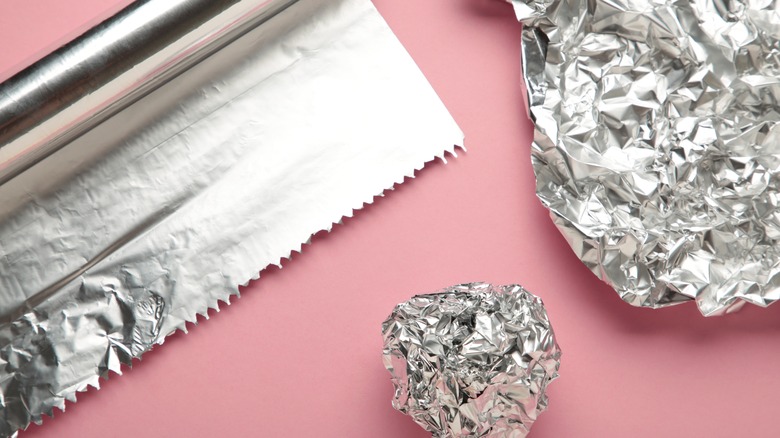Brilliant Tips And Tricks To Keep Mice Out Of Your Home And Garden
No matter what your feelings are about mice, the fact is that seeing these around your home and garden is usually an unwelcome sign. In fact, the Centers for Disease Control and Prevention says that both mice and rats can carry several diseases that are harmful to humans, which may be passed through their saliva, urine, feces, and bites. They can even spread diseases indirectly through fleas and ticks they sometimes carry. On top of this, once mice decide to take up residence in your home, they can cause quite a bit of damage, especially if they decide to nest in your walls.
Needless to say, the best way to avoid problems associated with mice is to keep them out of your home and garden. This includes using preventive measures that don't require any chemicals or traps. While none of these measures are 100% foolproof, they can help deter mice, particularly when you use more than one method. Also, keep in mind that the below methods are best used in conjunction with other mouse-deterring steps you might already be taking. These include avoiding leaving pet food and bird food outside overnight, and making sure these items are kept inside in sealed containers. If you see signs of an active infestation, it's time to seek help from a professional pest control expert.
Use essential oils to help deter mice from your home
You might have heard that essential oils may deter flies and other insects, but certain essential oils also purportedly work against mice. Mice particularly don't care for strong scents from the mint family. These include peppermint and citronella. They also don't like eucalyptus, cinnamon, and clove.
If you're interested in trying out essential oils to keep mice out of your home, simply mix several drops of one of the above essential oils with water. For example, you can combine peppermint essential oil with water in a spray bottle and use it liberally to help keep mice away from your home and garden. Alternatively, you can also use clove or eucalyptus oils. When using essential oils as a deterrent against mice from entering your home, keep in mind that this method only works if the rodents have not yet made it inside your house. In such cases, you can spray entry points, such as gutters, doors, and windows. If you already have a mice problem, though, this method could potentially prevent them from leaving.
Use mice-deterring plants in your garden
When considering the best ways to deter mice from your garden, you might consider actual plants instead of (or in conjunction with) the use of some of the aforementioned essential oils. Mice are not fond of eucalyptus, citronella, lavender, mint, and peppermint plants. They also don't like herbs, such as basil, catnip, and rosemary, as well as onion and garlic.
In theory, planting a variety of the above plants could help prevent mice from roaming in your garden, and possibly your home. To make this trick successful, you'll need to follow all care instructions from packets, if planting seeds, or on planters, if you're buying small plants from a gardening center. For example, basil, mint, and rosemary plants all prefer about six hours of sunlight per day, according to The Happy Gardening Life. Another caveat to this method could be if you have pets, as some of these plants are considered toxic to cats, dogs, and even horses. Be sure to always do your research to ensure the plants you choose are safe for your household.
Consider using cinnamon to repel mice
If you cook with cinnamon on a regular basis, you might consider using some of this popular spice as a potential mouse deterrent. In fact, cinnamon is a relatively strong spice that mice reportedly don't care for, and their dislike of the spice could prompt them to avoid your home and garden, when placed strategically. By using cinnamon to repel mice, you may also help keep other pests away that dislike the spice, too. The long list of cinnamon-haters includes ants, mosquitoes, roaches, spiders, and more.
You can use three different forms of cinnamon to help deter mice: powders, sticks, and oils. You don't have to go out and buy anything special if you already have cinnamon powder in your spice cabinet. Simply spread it along entry points around your home or on the ground in your garden. (You can also add cinnamon in sachets to cut down on the mess.) Another method includes whole cinnamon sticks, which can be placed around areas mice may try to enter. Finally, a potent, and perhaps less messy, method is cinnamon essential oil. You can use the oil in a spray bottle, a diffuser, or on cotton balls to help maintain a cinnamon scent around your home and garden that will be off-putting to these rodents.
Consider enlisting help with mice from a cat
If you're a lover of cats, you might love these felines even more once you learn how they can help keep pests away from your home. Cats are naturally good at detecting mice, in some cases before you even see signs of them in your house (personal experience here). As such, mice may steer clear of your home or garden if a cat is nearby. Just as mice don't care for the scents of certain oils, spices, and plants, they definitely hate the scent of a cat. Additionally, if a cat spots a mouse, they can be inclined to catch it themselves, helping your mice problem by eliminating one, and also possibly deterring others from sneaking by.
If you don't currently have a feline fur-baby, you might consider adopting one if mice are commonplace around your garden and home. However, adopting a cat to get rid of mice from your home trick may not be completely foolproof, as some cats tend to want to play with mice rather than hunt them. This is largely dependent on the cat's personality, as well as their hunger level. Another alternative is to sprinkle cat litter near your home's entry points, as well as in your garden. The smell of the litter can remind mice of cats, and help deter them, per Almanac.
Keep mice away with the smell of vinegar
When deterring mice from your home and garden, certain smells seem to help accomplish this goal. In fact, the smell of vinegar is another item mice reportedly can't stand. It's thought that mice don't like vinegar for its strong smell, and that it may also cause irritation to their senses.
Before you start pouring vinegar around your garden or entries to your home, consider that humans may be sensitive to the smell of it as well, particularly in large quantities. Proof Pest Control recommends combining 1:2 ratio of water and vinegar in a spray bottle. Use this solution in moderate amounts around entrances to your home, or surrounding your garden. Vinegar can also be too acidic to use on plants, though you should be able to spray a vinegar and water solution in surrounding areas of a garden, such as rocks or mulch. You can also place vinegar-soaked cotton balls around windows and doors, instead of using the spray version. In terms of vinegar type, consider using white vinegar. The smell is stronger, and it is much more economical than other types of vinegar. As an alternative, apple cider vinegar can work if you have it on hand.
Seal your home and prevent common hiding places for mice in your yard
Aside from adding potential mice-deterring items around your home and garden, you can also help prevent these rodents from entering your spaces by removing the spots they like hiding in. These include piles of leaves, debris, and open trash cans in your outdoor spaces, as well as small cracks they can enter to gain access to the inside of your home. Eliminating these places can also discourage nesting.
First, take an assessment of what is lying around in your yard. Avoid leaving piles of leaves, logs, pine straw, or mulch for longer than a day. These can quickly turn into places of shelter or nesting for mice. You'll, when laying down pine straw or mulch around your gardens, take care not to make the piles too high for rodents to hide out underneath. To prevent mice from taking shelter from inside your home, you'll need to inspect the outside to see if any small cracks or holes exist. These sometimes occur from damage, as well as from the house settling. If you find any holes or other small spaces, promptly seal these with foam sealant to keep mice out of your home.
Prevent mice with aluminum foil
Aside from certain smells, predators, and a lack of place to take shelter, there's also a way to deter mice based on another sensory-based method. It turns out that mice reportedly have an aversion to the sound of aluminum foil. On top of this, a mice may avoid walking on aluminum foil due to the harsh sounds their small feet can make against it, as well as its texture and shiny material.
When using aluminum foil to keep mice out of your home, the key is to use it at various entry points. For example, you can crumble up pieces of aluminum foil around your windows, doorways, or other crevices. You can also use a flat sheet of foil in front of an entry, such as on top of a doormat. An approaching mouse might hesitate to walk on the foil, and they're also unlikely to eat this metal. You can take the process a step further by wrapping foil around spots mice might climb, such as legs of furniture, as well as any posts on your patio.
